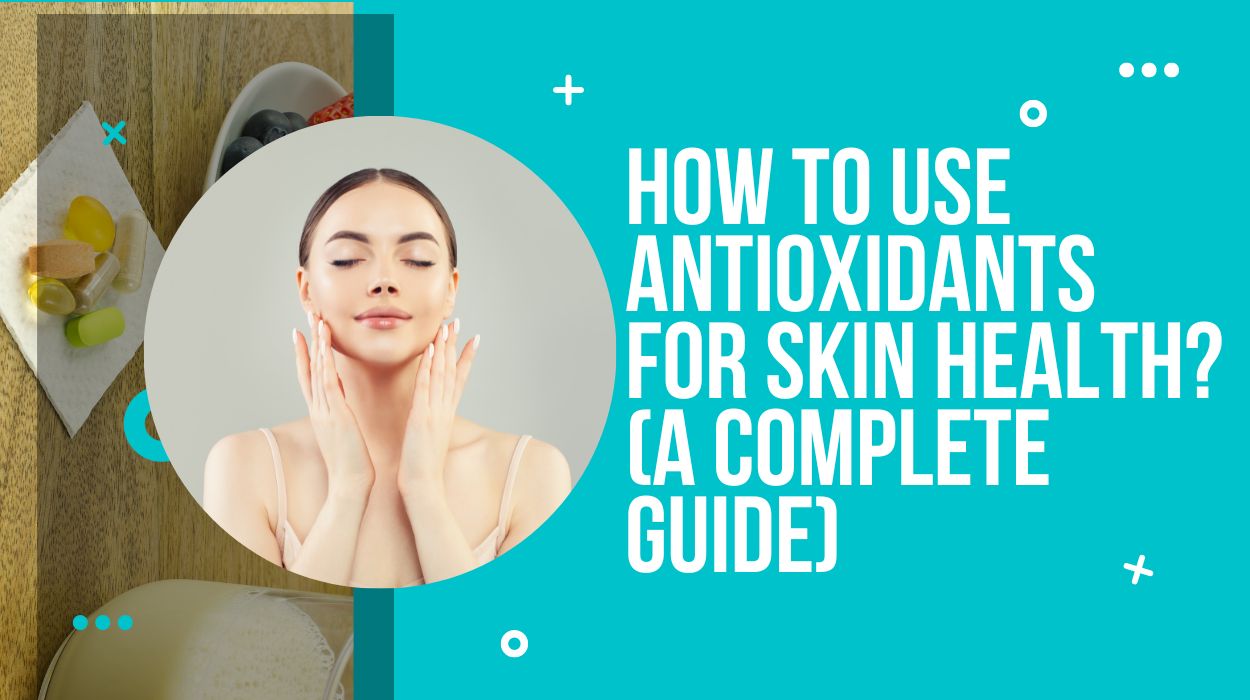Antioxidants are one of the most known products in the world of beauty and skin health. Haven’t you often stumbled across people talking about the benefits of antioxidants? Antioxidants have numerous benefits for our skin health.
However, these benefits are only seen when they are used correctly. If you wonder how you can use antioxidants for skin health, you are at the right place. In this article, we will be covering why and when we should use antioxidants and which are some of the most effective antioxidants for our skin health.
Why Put Antioxidants On Your Skin?
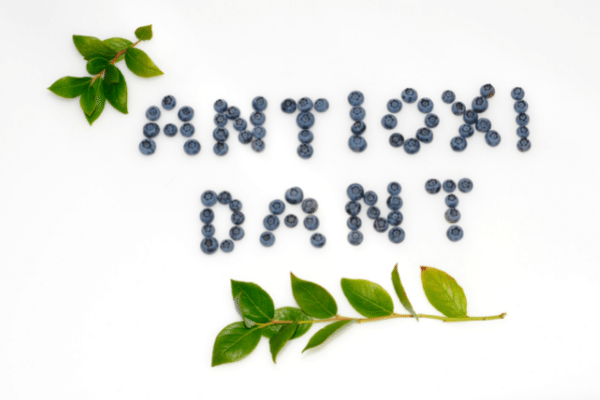
Antioxidants are known to fight and protect your skin cells from oxidative stress. If you wonder what oxidative stress is and how it harms the skin cells, hold on, we got you. In simple terms, when we exercise or our body is converting food into energy, free radicals or unstable molecules are formed.
Nonetheless, cigarette smoke, pollution, and sunlight may also lead to free radical formation. These free radicals or unstable molecules create oxidative stress in the cells. Oxidative stress damages cells and may lead to aging and chronic diseases like Alzheimer’s, Parkinson’s’, Cataracts, etc.
Antioxidants work by scavenging the free radicals and counteract oxidative stress in the cells. Hence, antioxidants are our cell soldiers! There’s are many reasons why you should apply antioxidants; here are a few of them:
1. Antioxidants Prevent Aging
As we previously learned, oxidative stress damages cells and causes inflammation. Nonetheless, oxidative stress is also responsible for a decrease in collagen production. Collagen is the main protein responsible for the elasticity of the skin. A reduction in collagen production causes fine lines and wrinkles. As antioxidants work to combat oxidative stress, they also reduce fine lines and wrinkles.
2. Antioxidants Help Prevent Sun Damage
UV Rays from the sun damage our skin and cause inflammation. Antioxidants work by forming a protective barrier against these harmful UV Rays. According to a study published in the Journal of Investigative Dermatology Symposium Proceedings, the addition of botanical antioxidants to broad-spectrum sunscreens decrease UV-induced damage compared with sunscreen alone.
3. Antioxidants Brighten Skin Tone
Antioxidant inhibits tyrosinase, which is responsible for melanin production. By virtue of this ability, antioxidants reduce dark spots and hyperpigmentation. Moreover, antioxidants also even out skin tone. Hence, antioxidants work wonders at brightening the skin.
4. Antioxidants Combat Acne
Free radicals in the skin cause clogged pores leading to acne. By fighting against these free radicals, antioxidants also work at reducing acne. Nonetheless, antioxidants also have anti-inflammatory properties and reduce the redness and inflammation caused due to acne.
Author’s Note: Do not switch or replace your healthy diet or medications with anti-oxidants. Consulting a physician before consuming antioxidants is necessary as antioxidants may react with medications or other supplements.
There are so many reasons to start using antioxidants! But how do we use them? Keep reading to find out about it.
How To Use Antioxidants?
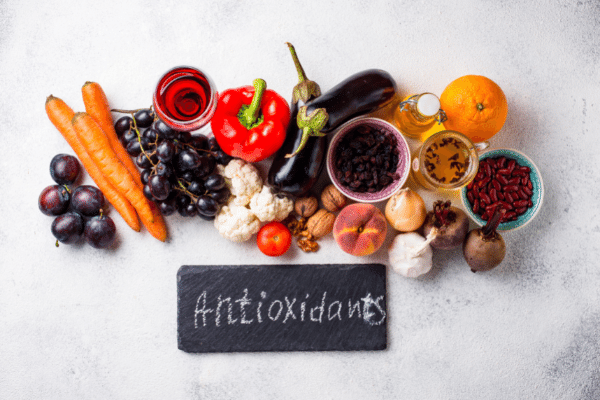
Antioxidants have various benefits for our skin and should be incorporated into our bodies daily by various means.
1. Diet
Incorporating antioxidant-rich food can protect your skin from damage. According to a study published in Acta Scientiarum Polonorum Technologia Alimentaria Journal, the following sources are the richest sources of antioxidants:
- Fruits like blackcurrant, strawberry, and raspberry, apples, and citrus fruits like grapefruits, lemons, oranges
- Vegetables like tomatoes, red pepper, cabbage, cauliflower, broccoli, onion, garlic, and red beet
- Legumes such as peas and beans
- Beverages like coffee, tea, cocoa, red wine, and beer
- Herbs and spices
2. Topical Antioxidants
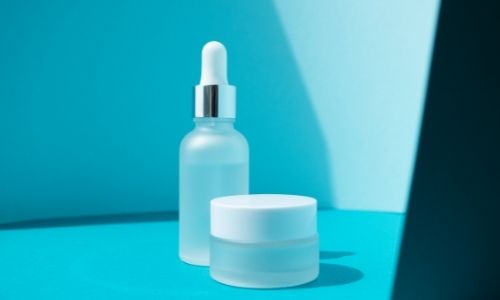
Serums, lotions, face creams, and face oils are some topical ways to provide antioxidants for bettering your skin health. Serums are the best forms of topical antioxidants as they are concentrated forms that can help provide highly powered antioxidant treatment. However, moisturizers and lotions are usually prescribed for providing hydration to the skin and sit on top of the skin, and so, antioxidants in such formulations do not penetrate deeply.
3. Antioxidant Supplements
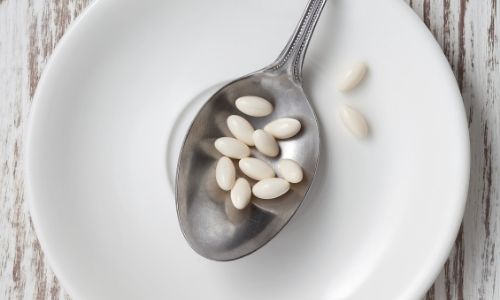
If getting antioxidants through diet becomes a challenge, supplements of antioxidants may prove beneficial. However, antioxidant supplements are high concentrates of antioxidants that contain 70-1660% of the daily value of antioxidants. Moreover, It is recommended to ingest antioxidants from food rather than supplements.
4. When Should Antioxidants Be Used On Skin?
Antioxidants protect our skin from all kinds of damage. If you use it the right way, you will indeed see the best of the results! Here are a few tips to yield the best out of your antioxidants.
5. If You Are A First-Time User, Start With Serums
Serums, gels, or anything with a dropper attached is easier to apply. You can further start using good moisturizers and creams once you learn the right amount of antioxidants to be applied to your skin.
6. Apply Antioxidants First Thing After Washing Your Face
You should only apply antioxidants on dry skin. Hence, apply antioxidants after washing your face and drying it with a towel. Nonetheless, once the skin has absorbed your antioxidants, top it off with sunscreen.
7. Apply Antioxidants In The Morning
As antioxidants are known to protect you from sun damage, applying them in the morning could be a better option. Whether consuming antioxidants at night is beneficial is still a debatable topic. Some researchers suggest that nutritional supplements are not absorbed by our bodies at night when we sleep. However, some researchers argue that consuming antioxidants at night gets stored in the body, and the build-up protects your skin the following day.
Author’s Tip: If your antioxidant serum contains retinol, do not use it with products containing Vitamin C or salicylic acid.
Effective Antioxidants
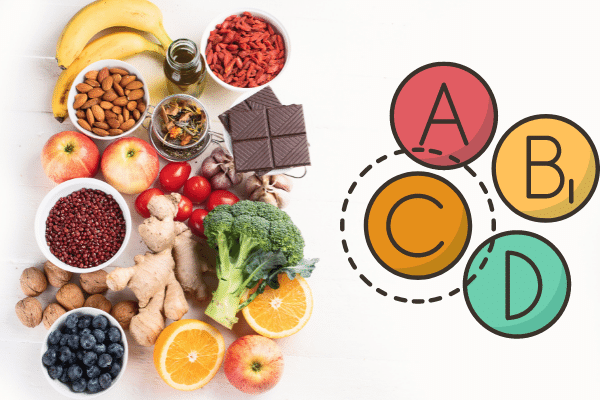
If you are excited to use antioxidants but don’t know which one would suit you, we got you! Here’s a list of the most powerful antioxidants that can help your skin in different ways!
1. Vitamin C

Vitamin C is one of the most known antioxidants and protects against sun damage. Nonetheless, Vitamin C is most known for its skin brightening properties and reducing hyperpigmentation and dark spots. It also works great for people with acne-prone skin.
2. Vitamin E
Vitamin E is known for its skin healing and moisturizing effects. Nonetheless, Vitamin E also supports and stabilizes other antioxidants.
3. Vitamin A or Retinol
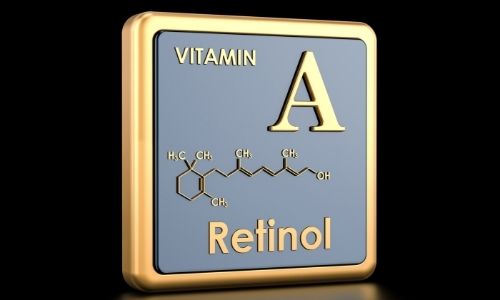
Vitamin A or Retinol is the most known antioxidant for anti-aging. Vitamin A reduces fine lines wrinkles while supporting the skin to shed old and dead skin and generate new cells. Thus, Vitamin A is a perfect companion for younger and rejuvenated skin!
4. Ferulic Acid
Ferulic acid is a well-known antioxidant that has also found its uses in the pharmaceutical industry. Ferulic acid stabilizes and kills free radicals and inhibits the process that generates free radicals. According to a study published in the Skin Pharmacology and Physiology Journal, Ferulic acid works as a photoprotective agent, delayer of skin photoaging processes, and brightening component.
5. Coenzyme Q10
Coenzyme Q10 Works By protecting the cells from the damage caused by free radicals. Nonetheless, it provides energy to the skin cells, making them look younger while retaining moisture in the skin.
6. Vitamin B3 or Niacinamide
Niacinamide, also known as Nicotinamide, is a powerful antioxidant that reduces fine lines and wrinkles. Nonetheless, it also reduces dark spots, hyperpigmentation, and redness caused by acne.
Source: https://pubmed.ncbi.nlm.nih.gov/17147561/
7. Curcumin

Curcumin is found in turmeric. Curcumin works as an anti-inflammatory agent, thus reducing inflammation. It also prevents collagen breakdown, makes the skin look younger, and protects the skin by killing acne-causing bacteria.
8. Polyphenols
Polyphenols like Resveratrol and Flavonoids are well known for their antioxidant and anti-inflammatory properties. These antioxidants protect the skin from sun damage and prevent signs of aging.
Author’s Tip: UV rays may affect the effectiveness of Resveratrol. Hence, resveratrol antioxidants should be taken or applied in the evening.
Frequently Asked Questions
1. Can too much antioxidant be harmful?
Anything in excess is harmful. Similarly, when taken in large amounts, antioxidants can be a threat to our bodies! Consuming high amounts of antioxidants can cause harm and have been linked to causing cancer in some people.
2. How much antioxidant do we need daily?
There is no minimum required amount to consume when it comes to antioxidants. However, we need to consume 8,000 to 11,000 antioxidant units per day to balance free radicals in our bodies.
3. How long does it take for antioxidants to work on the skin?
Antioxidants have preventive and protective actions on our skin. They help repair damage and reduce signs of aging. Hence, antioxidants may take a longer time, upto 30 days, to show their results and improvements.
You May Also Like To Read:
Best Foods for Healthy, Glowing Skin
10 Best Natural Ingredients for Your Skin
Conclusion:
Antioxidants are a gift for our skin. Learning to use them the right way, at the right time, is essential to ensure that our skin benefits from all its goodness. You should consume antioxidants primarily through good food and by applying serums.
However, if it seems challenging, consuming them through supplements can be a choice. Although, do not forget that consuming higher antioxidants can be risky. Hence, always consult your doctor to learn the correct amount of antioxidants that you should be consuming.
Drop-in a comment below and let us know your favorite antioxidant.

